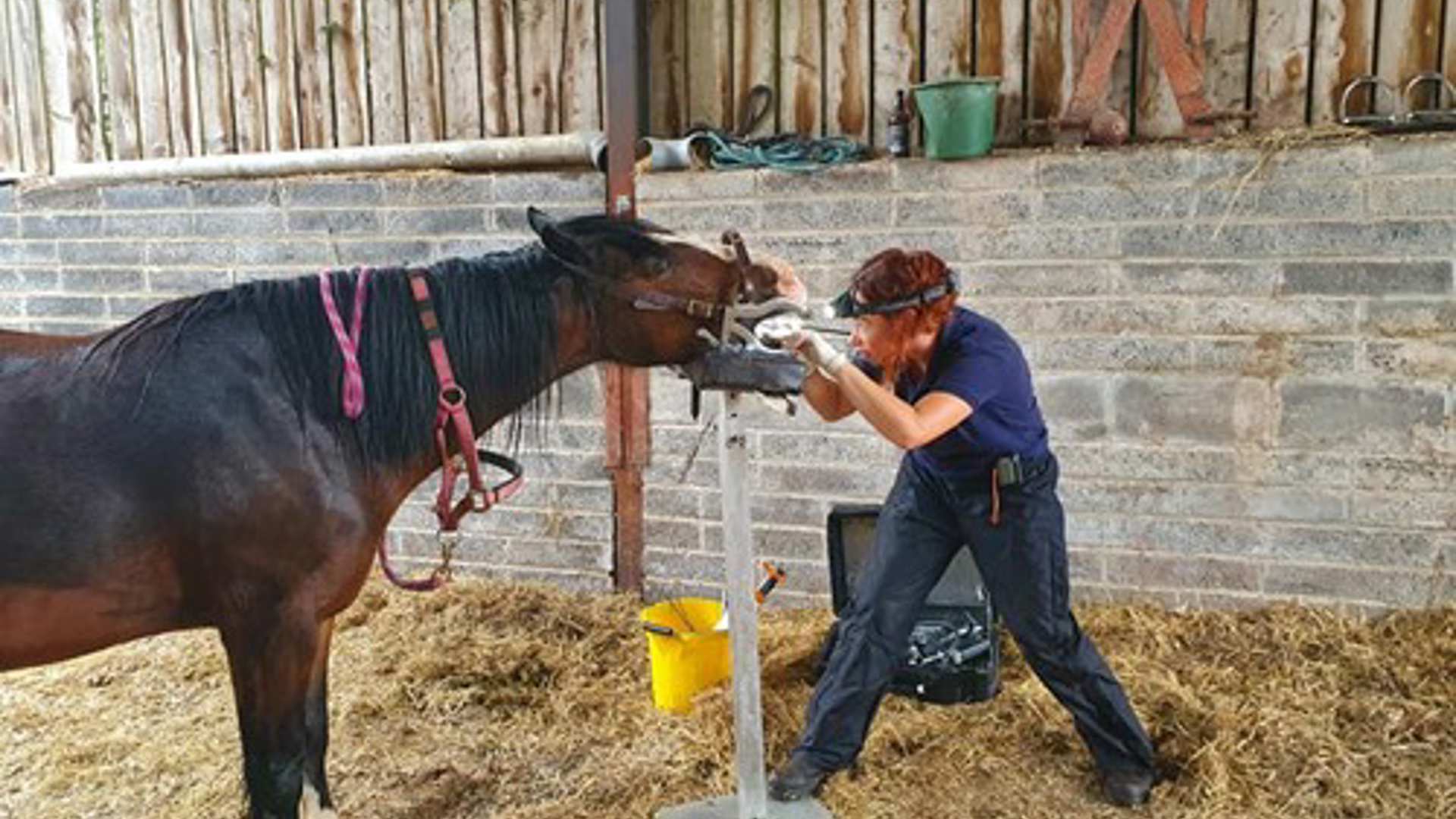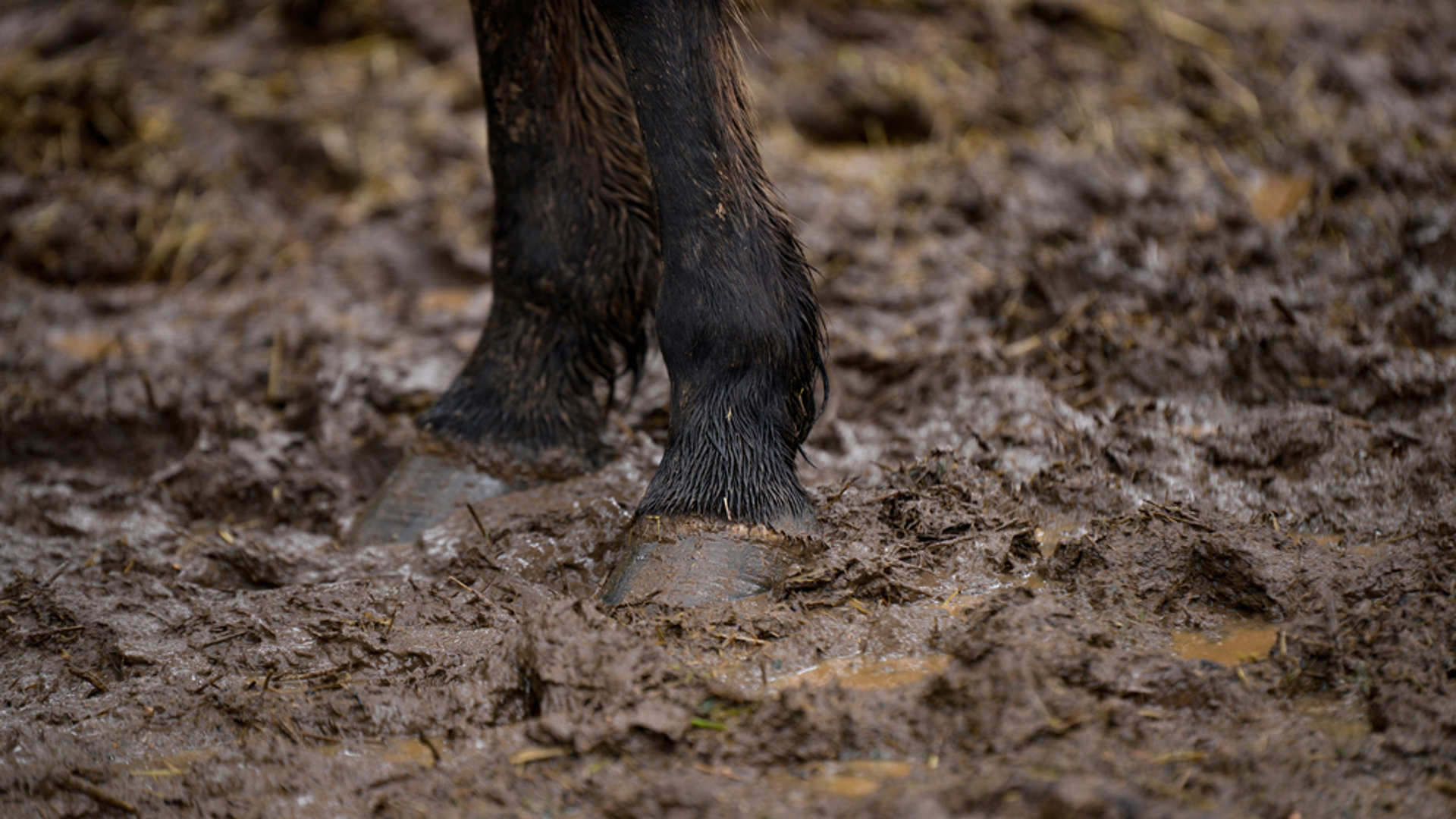
Mud Fever
Mud fever tends to be most common during the autumn and winter months when frequent rainy weather increases the likelihood of horses spending time out in wet, muddy fields. Mud fever, also known as pastern dermatitis, can be caused by various bacteria which thrive in these damp conditions and prolonged exposure can cause the skin to soften and become vulnerable to these bacteria. This condition primarily affects the lower limbs and manifests as crusty scabs, skin breakage, inflammation, swelling, and possible lameness in severe cases. Mud fever can be very painful and in some cases lead to infections developing underneath the scabs. Susceptibility to mud fever can also be affected by unclean bedding, inadequate drying or excessive leg washing, existing wounds and sensitive pink skin under white marks.
Prevention and management are key during these wet months. Check your horses’ legs daily to help spot the early signs, making it easier to manage and increase the chance of success with treatment. You can help with prevention by:
- Minimising prolonged exposure to wet conditions
- Good pasture management measures
- Using barrier creams
- Drying their legs thoroughly
- Cleaning bedding areas
- Addressing any underlying conditions promptly
Early veterinary consultation for accurate diagnosis is imperative to help your horse if you suspect they have mud fever. However, there are a few ways you can help including washing affected areas with a mild anti-bacterial warm water wash and drying thoroughly. Where the cases are more severe, or in horses with thick feathers, you will need to clip away the surrounding hair to allow for rigorous cleaning. Whilst cleaning try to remove any dirt or scabs, however it is important to be gentle as it is possible this area will be very sore. Speak to your veterinary team about the best treatment options for your horse and recommendations for barrier and treatment creams.
Stay in the know Related articles & advice
-
Colic

-
Dental Health

-
Laminitis

